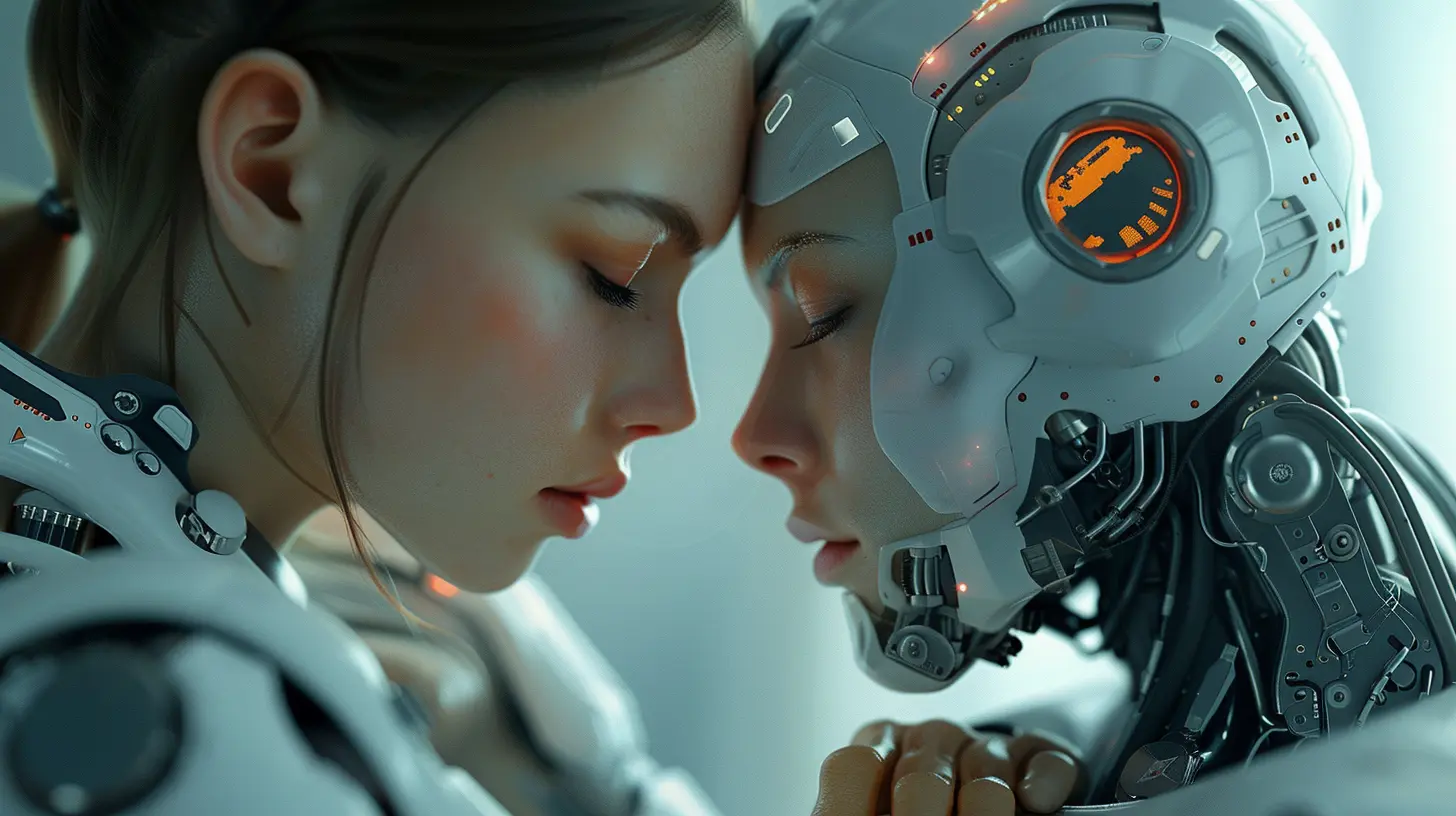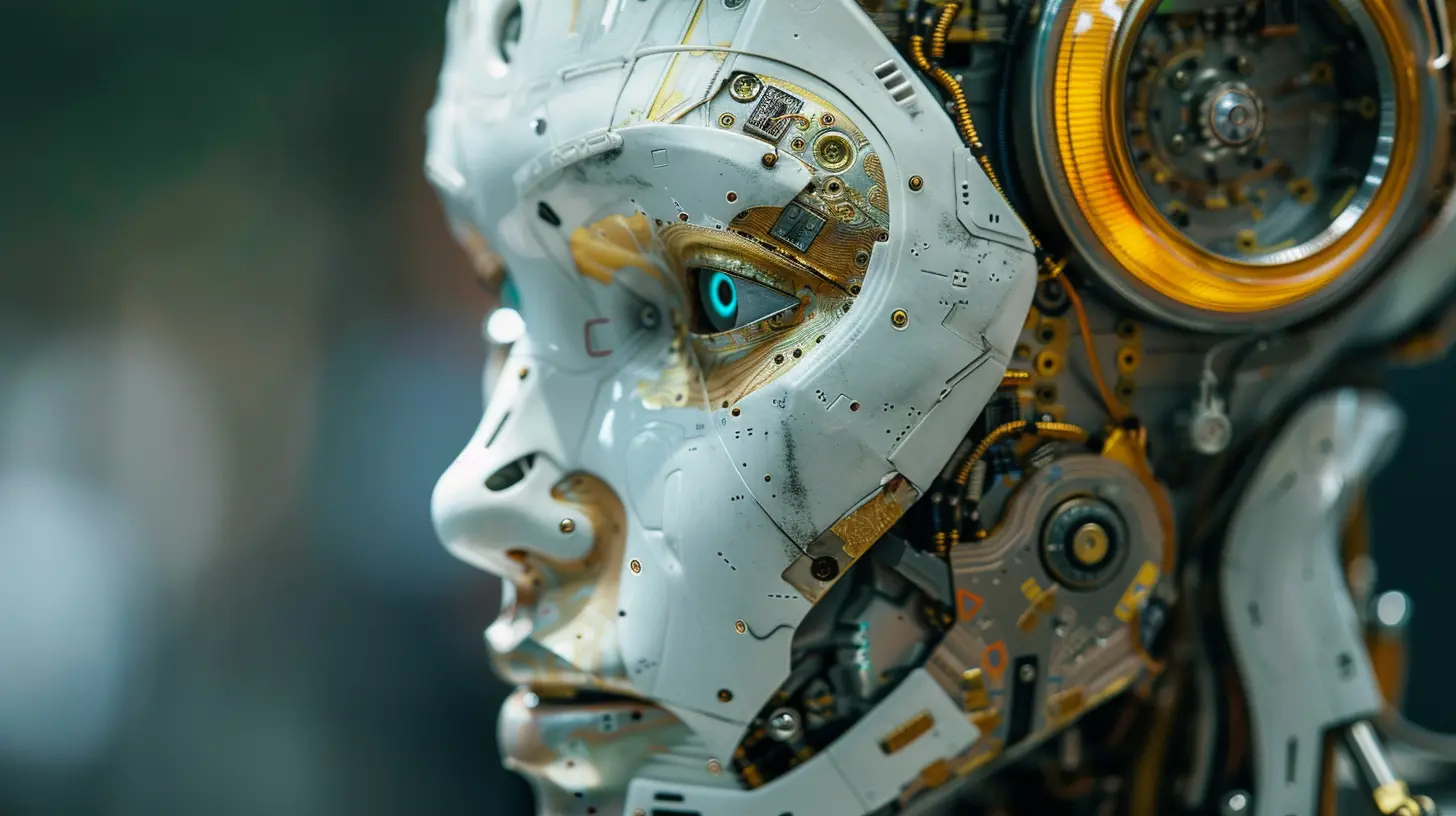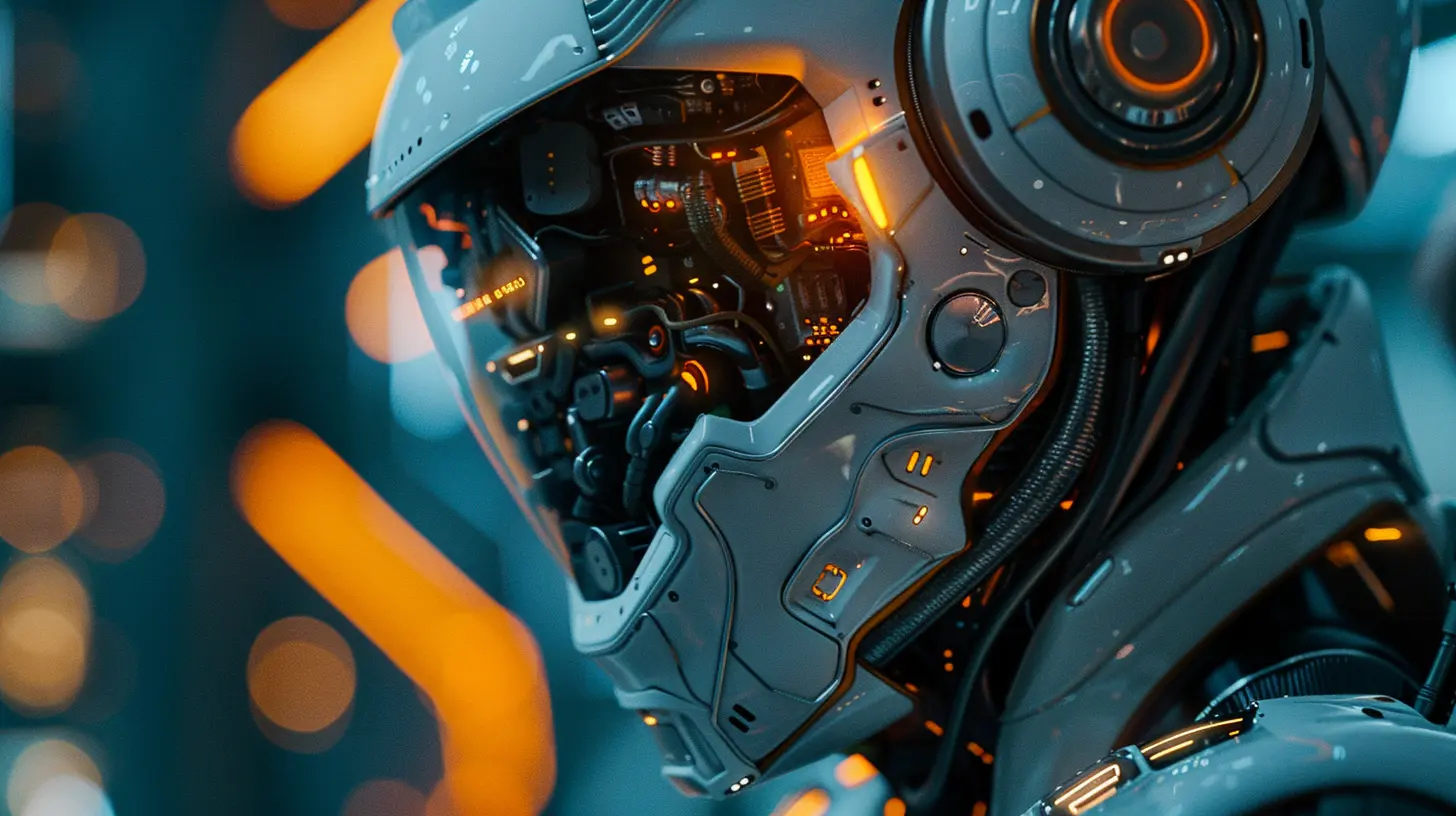The Ethics of AI in Education: Are We Over-Relying on Automation?
10 April 2025
Artificial Intelligence (AI) is transforming education at an astonishing pace. From personalized learning platforms to automated grading systems, AI is making classrooms more efficient and accessible. But are we placing too much trust in automation? Is our dependence on AI compromising the ethical foundations of education? Let’s break it down.

The Rise of AI in Education
AI has quickly become a game-changer in classrooms. Teachers and students are embracing tools like adaptive learning algorithms, AI tutoring systems, and even AI-powered chatbots to assist with coursework. Educational institutions are integrating AI to streamline administrative work, analyze student progress, and even predict academic performance.But with all these advancements, one pressing question remains: Are we over-relying on automation at the cost of human touch?

The Benefits of AI in Education
Let’s be honest—AI is making life easier for both educators and students. Here’s how:1. Personalized Learning
AI can assess a student’s strengths and weaknesses and tailor lessons accordingly. No more one-size-fits-all teaching! Platforms like Duolingo and Coursera use AI models to adjust course content based on how well a student is performing.2. Automated Grading and Feedback
Teachers no longer have to spend hours grading multiple-choice tests and even essays. AI can evaluate assignments in seconds, offering instant feedback that helps students improve faster.3. 24/7 Assistance
Unlike human teachers, AI doesn’t need sleep. Chatbots like ChatGPT and AI-powered tutors provide round-the-clock help to students struggling with assignments or concepts.4. Data-Driven Insights
AI analyzes learning patterns and identifies areas where students might be struggling. This helps educators intervene early and offer additional support before a student falls too far behind.There’s no doubt AI is offering tremendous value, but here’s the kicker—should we rely on it so much that we forget the human aspect of learning?

The Double-Edged Sword: Ethical Concerns
While AI is revolutionizing education, its growing influence raises serious ethical questions. Where do we draw the line between efficiency and ethical responsibility?1. Loss of Human Connection
Imagine a classroom where all learning is automated—no emotional connection with teachers, no classroom discussions, just a screen feeding you information. Sounds depressing, right?Education is more than just absorbing facts; it's about mentorship, collaboration, and real-world interactions. Over-reliance on AI can strip away the emotional intelligence that only human educators provide.
2. Bias in AI Algorithms
AI is only as good as the data it's trained on. If the training data has biases, the AI will reflect them—sometimes amplifying them.For example, some AI grading systems have been accused of favoring certain writing styles over others, potentially disadvantaging students from diverse linguistic backgrounds. If we trust AI blindly, we risk reinforcing societal biases rather than eliminating them.
3. Privacy and Data Security
AI relies on vast amounts of student data for personalization. But who controls this data? How is it stored, and who has access to it?With increasing concerns about cybersecurity, there's always the danger of private student data being misused or hacked. Should we really be handing over such sensitive information to algorithms?
4. Reduced Critical Thinking
Automation makes life easier, but does it make students lazier? Think about it—if you have AI writing your essays, reminding you of deadlines, and even solving math problems for you, are you really learning or just outsourcing your thinking?Education isn’t just about getting the right answers; it's about developing problem-solving skills and critical thinking—things an AI can’t do for you.

Striking a Balance: Human vs. AI in Education
So, what’s the answer? Do we ditch AI in education altogether? Obviously not. AI is here to stay, but we must find a balance. Here’s how:1. Keep AI as an Assistant, Not a Replacement
AI should complement human teachers, not replace them. Let it handle repetitive tasks like grading, while teachers focus on mentoring, guiding discussions, and inspiring students.2. Ethical AI Development
Developers must be transparent about how AI models are trained and ensure they are free from bias. Schools and policymakers should establish ethical guidelines to govern AI use in education.3. Stronger Data Protection Rules
Student data should be handled with the utmost care. Institutions should adopt strict privacy policies and safeguard student information from misuse.4. Encourage Human-Led Learning
AI-powered learning tools should be used to enhance—not replace—traditional teaching methods. Classroom discussions, debates, and hands-on learning must remain at the heart of education.Final Thoughts
AI in education presents incredible opportunities, but it also comes with risks. We must ensure that in our pursuit of efficiency, we do not lose sight of the ethical foundations of learning.Education should be about more than just automation—it should be about fostering curiosity, creativity, and critical thinking. AI can certainly help, but it shouldn't take over. The challenge ahead is clear: How do we embrace AI without letting it define the future of education?
all images in this post were generated using AI tools
Category:
Ai EthicsAuthor:

Marcus Gray
Discussion
rate this article
8 comments
Cecilia Elliott
Thought-provoking article! Balancing innovation and ethics is crucial.
May 2, 2025 at 10:22 AM

Marcus Gray
Thank you! I appreciate your thoughts on the importance of balancing innovation with ethical considerations in AI education.
Foster Snow
This article raises some fascinating questions about the role of AI in education. Are we truly enhancing learning, or are we inadvertently stifling creativity and critical thinking? I'm curious about the balance between technological efficiency and the essential human elements of teaching. How can we ensure that students remain engaged and thoughtful?
April 24, 2025 at 7:41 PM

Marcus Gray
Thank you for your insightful comment! Striking a balance between AI efficiency and fostering creativity in education is crucial. We must integrate technology thoughtfully, ensuring it complements rather than replaces the human elements of teaching, to keep students engaged and encourage critical thinking.
Ashley Wolfe
AI in education is like having a smart robot assistant in class—super cool, but let’s not forget the importance of human touch! While automation can help, it shouldn't replace the magic of personal connections. Let’s find the perfect balance between bits and bonds!
April 16, 2025 at 12:20 PM

Marcus Gray
Absolutely! Balancing AI's efficiency with the essential human touch is crucial for fostering meaningful learning experiences.
Harper McKenzie
This article raises crucial points about AI in education. While automation can enhance learning, we must ensure it complements, rather than replaces, human interaction and critical thinking.
April 15, 2025 at 7:43 PM

Marcus Gray
Thank you for your insights! I completely agree that while AI can enhance education, maintaining human interaction and fostering critical thinking is essential.
Elias Dorsey
Balance tech benefits with ethical considerations.
April 15, 2025 at 3:09 AM

Marcus Gray
Absolutely, balancing technology's advantages with ethical implications is crucial to ensure AI enhances education responsibly and equitably.
Zanya McFadden
This article raises crucial concerns about the over-reliance on AI in education. While automation can enhance learning experiences, it risks diminishing critical thinking and creativity. Striking a balance between leveraging technology and preserving human interaction is essential to foster well-rounded, resilient learners in an increasingly automated world.
April 13, 2025 at 7:46 PM

Marcus Gray
Thank you for your insightful comment! I agree that balancing AI use with human interaction is essential to ensure we nurture critical thinking and creativity in education.
Elena Riley
This article raises crucial points about the ethical implications of AI in education. While automation can enhance learning, we must be cautious of over-reliance. Balancing technology with human interaction is essential to ensure that education remains personalized and effective, fostering critical thinking and creativity in students.
April 13, 2025 at 5:02 AM

Marcus Gray
Thank you for your insightful comment! I completely agree that while AI can enhance learning, maintaining a balance with human interaction is vital for fostering creativity and critical thinking in education.
Kaitlyn Jackson
Great insights! Balancing innovation and ethics in AI is essential for a brighter educational future.
April 11, 2025 at 12:05 PM

Marcus Gray
Thank you! I completely agree—balancing innovation and ethics is crucial to harnessing AI's full potential in education responsibly.
MORE POSTS

How Voice Assistants are Shaping the Future of Entertainment

Unboxing the Latest Smartphones: What You Need to Know

How to Avoid Data Overexposure on Cloud-Based Platforms

Best Practices for Securing Your Cloud Applications

How to Maximize the Range of Your Electric Bicycle

Camera Gear for Sports Photography: Capture the Action Like a Pro